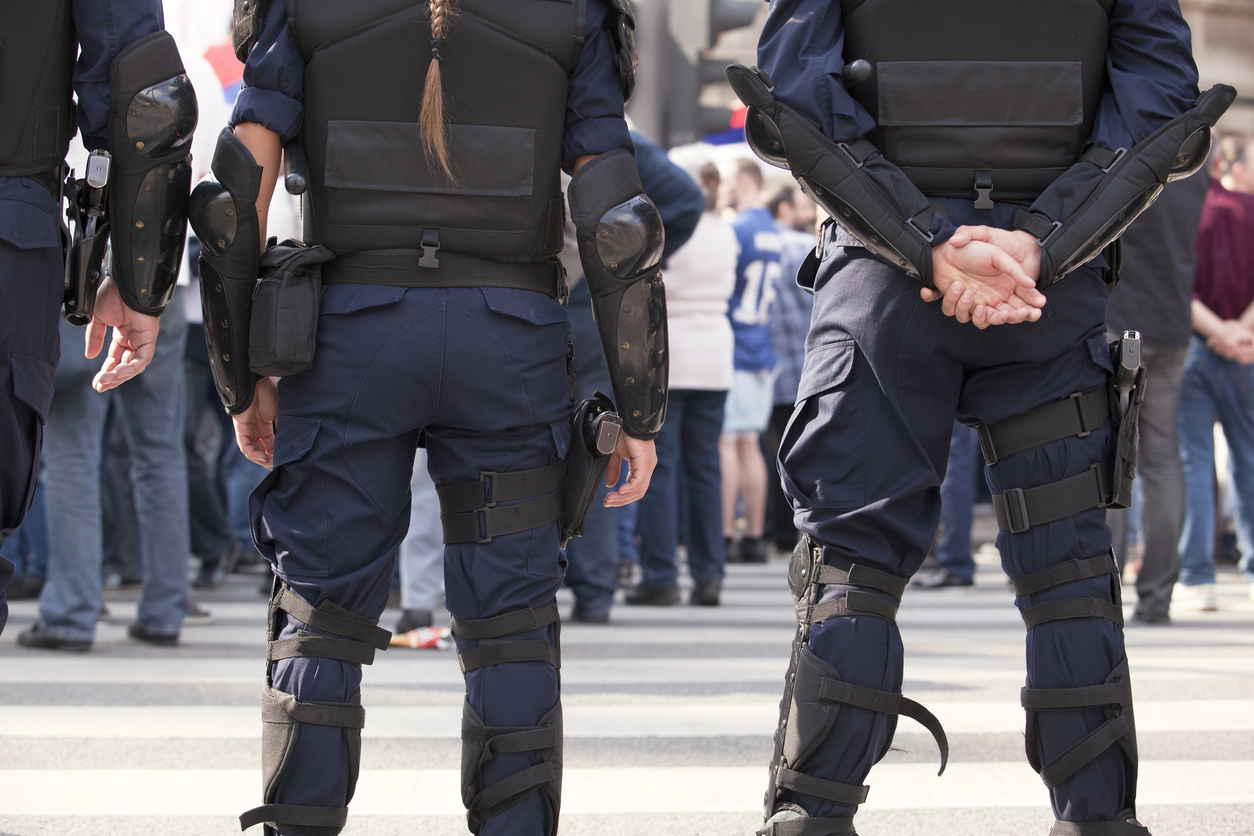Things Cops Do That Are Illegal: What a Police Officer Can and Cannot Do

No one is above the law, including police officers. Police officers who break the law are subject to the same criminal penalties as everyone else. Courts hold police officers accountable for their wrongdoing and illegal acts.
For example, a police officer who assaults another person, commits a drug crime, or operates a vehicle under the influence (DUI) can be fined and sentenced to jail. They can also face other criminal penalties and consequences for breaking the law.
It does not matter whether the police officer committed the crime while on duty or off duty. The law applies in both situations.
In addition to committing crimes, there are some things that police officers do during the course of their job that could be illegal if they violate your civil rights. Understanding your civil rights helps you know what to do during and after interactions with police officers.
Police Brutality and Excessive Force Complaints
Police officers can use reasonable force to protect themselves and others from danger and harm. They may also use reasonable force to detain and arrest a suspect.
Unfortunately, some police officers cross the line and use unreasonable force during interactions with the public. In some cases, excessive force could result in homicide charges, manslaughter, or other criminal charges. Assault or battery charges might apply if the person is injured during an arrest.
Because “reasonable” force is broadly defined, it can be difficult to know if a police officer’s actions were lawful or not until you speak with a lawyer.
False Arrests Can Result in Evidence Being Thrown Out
Before a police officer can arrest a person, perform a search, or obtain a warrant, the officer must have probable cause. Probable cause is a reasonable belief that a crime has been committed. For a search, it is the reasonable belief that evidence of a crime is present at the location being searched.
When a police officer arrests a person or conducts a search without probable cause, the officer violates the person’s Fourth Amendment rights. False arrests may also violate a person’s right to due process guaranteed by the Fourteenth Amendment. Additionally, the Eighth Amendment protects against cruel or unusual punishment, which could be an issue depending on how the person was treated after a false or wrongful arrest.
Illegal arrests, searches, and seizures could result in evidence being thrown out of court. Evidence that is obtained through illegal means is not admissible in court. The false arrest could also result in civil claims against the officers and the police department.
There are exceptions to probable cause, but the exceptions are few and only apply in specific situations.
Other Acts of Police Wrongdoing and Misconduct
Illegal arrests, wrongful searches, and police brutality are common examples of police misconduct. However, the list of things that police officers do while performing their duties that are illegal is long.
Other examples of illegal acts by police officers include:
- A police officer cannot tamper with evidence, including “planting” evidence to make a search or arrest appear legal
- Police officers cannot bribe individuals to obtain evidence or testimony
- A police officer cannot use intimidation, threats, or force to obtain a confession or information from a suspect
- Before initiating a traffic stop, the police officer must have a reasonable suspicion that a crime is being committed or has been committed
- Police officers can search a vehicle, home, or person if the evidence is in plain sight without a warrant or consent, but “plain sight” is often abused by police officers to perform illegal searches
- A police officer can lie to you, but they are not permitted to lie about whether they have a warrant or about your legal rights
When police officers violate your civil rights, you could face criminal penalties for a crime you did not commit. Even if you are guilty of committing a crime, police officers are not permitted to violate your civil rights. If they do, you may have one or more defenses against the charges.
What Should You Do When Police Officers Violate Your Civil Rights?
If you believe that a police officer violated your civil rights or is guilty of wrongdoing or misconduct, do not argue with the police officer. If you resist arrest, you could face additional criminal charges, and you could give the officer probable cause for the arrest.
Never consent to a search of your person, home, vehicle, or belongings. However, do not resist an unlawful search. Instead, state you do not consent to the search in a respectful but firm manner.
After your arrest, invoke your right to remain silent except asking for a criminal defense lawyer. You do not have to answer questions without an attorney present. Your lawyer will investigate any potential wrongdoing and prepare a defense strategy based on your civil rights and laws against police misconduct and wrongdoing.
To learn more, call our Los Angeles criminal defense law firm at 213-995-6767 or visit our contact us page to send us an email.


